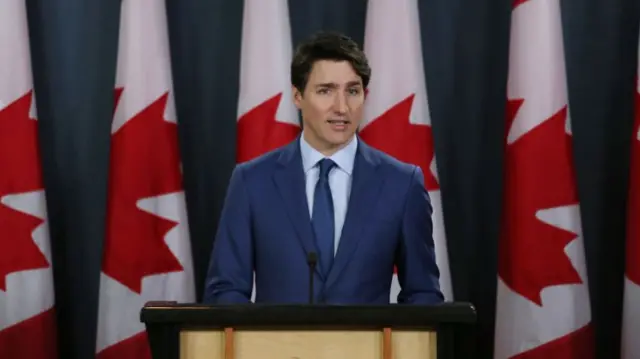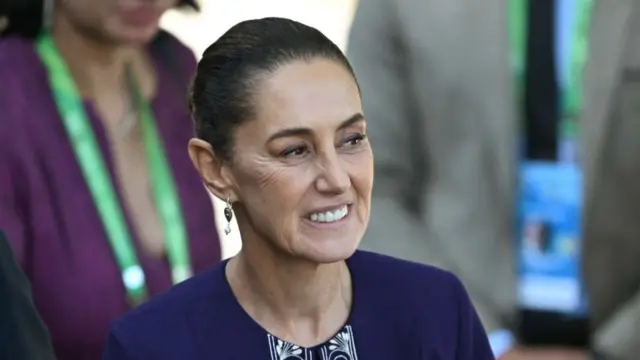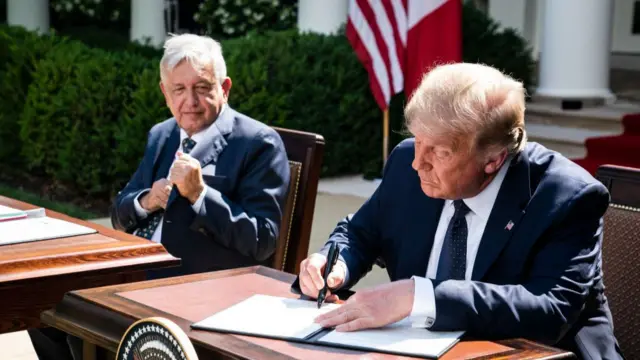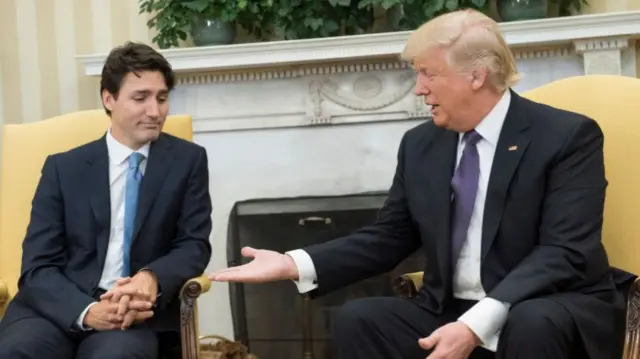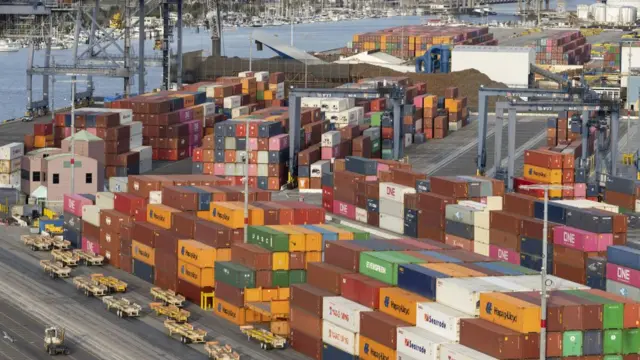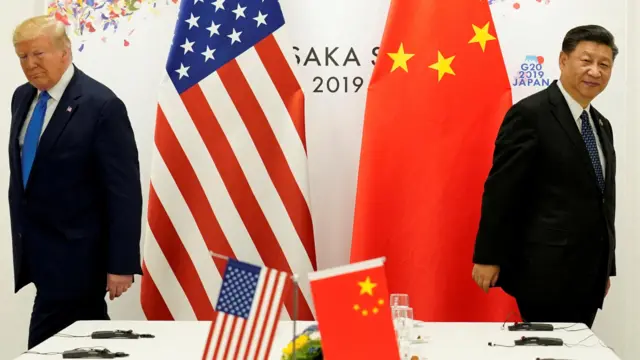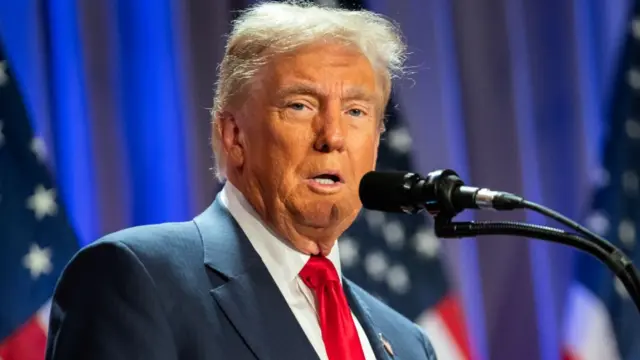Trump's 'border tsar' heads to US-Mexico borderpublished at 16:53 GMT 26 November 2024
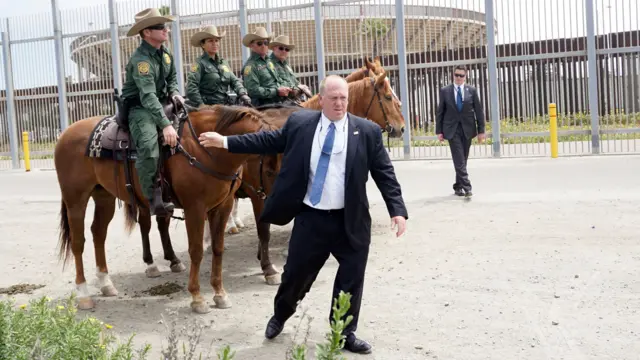 Image source, Getty Images
Image source, Getty ImagesHoman visiting border patrol agents in Texas in 2018
Tom Homan - Trump's appointed 'border tsar' - is heading to Texas on Tuesday to meet with the state's governor and inspect conditions along the US-Mexico border.
Trump made illegal immigration a major focus of his campaign, describing southern border crossings from Mexico as an "invasion of illegal aliens". He has vowed to swiftly end it, including using the US military to help with mass deportations.
After he won the election in November, he quickly began assembling his transition team and Homan, who worked in Trump's first administration to enforce immigration laws, was one of his first picks.
Trump has said he would enact the "largest deportation operation" in US history on his first day in office and has tapped Homan to lead that effort.



